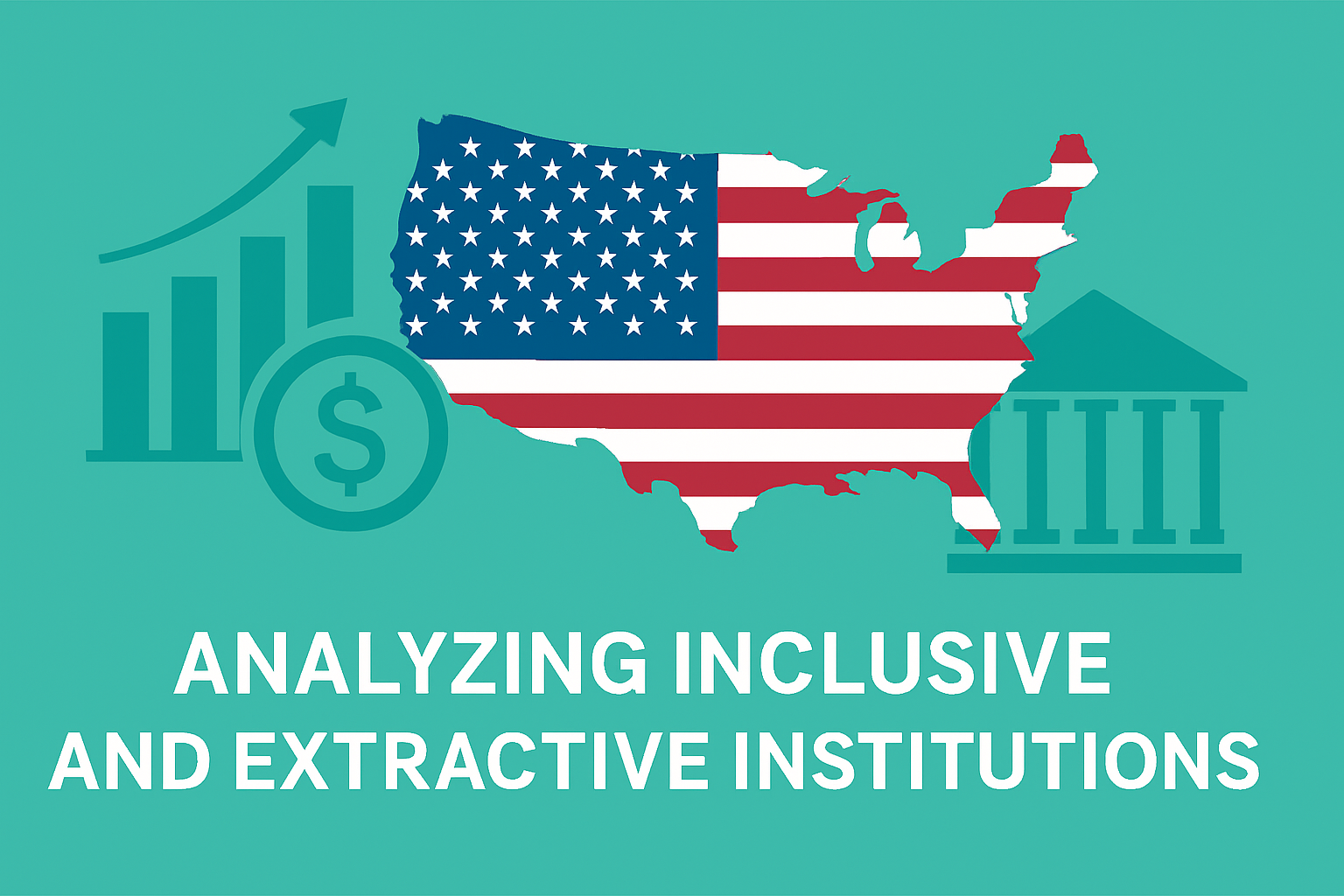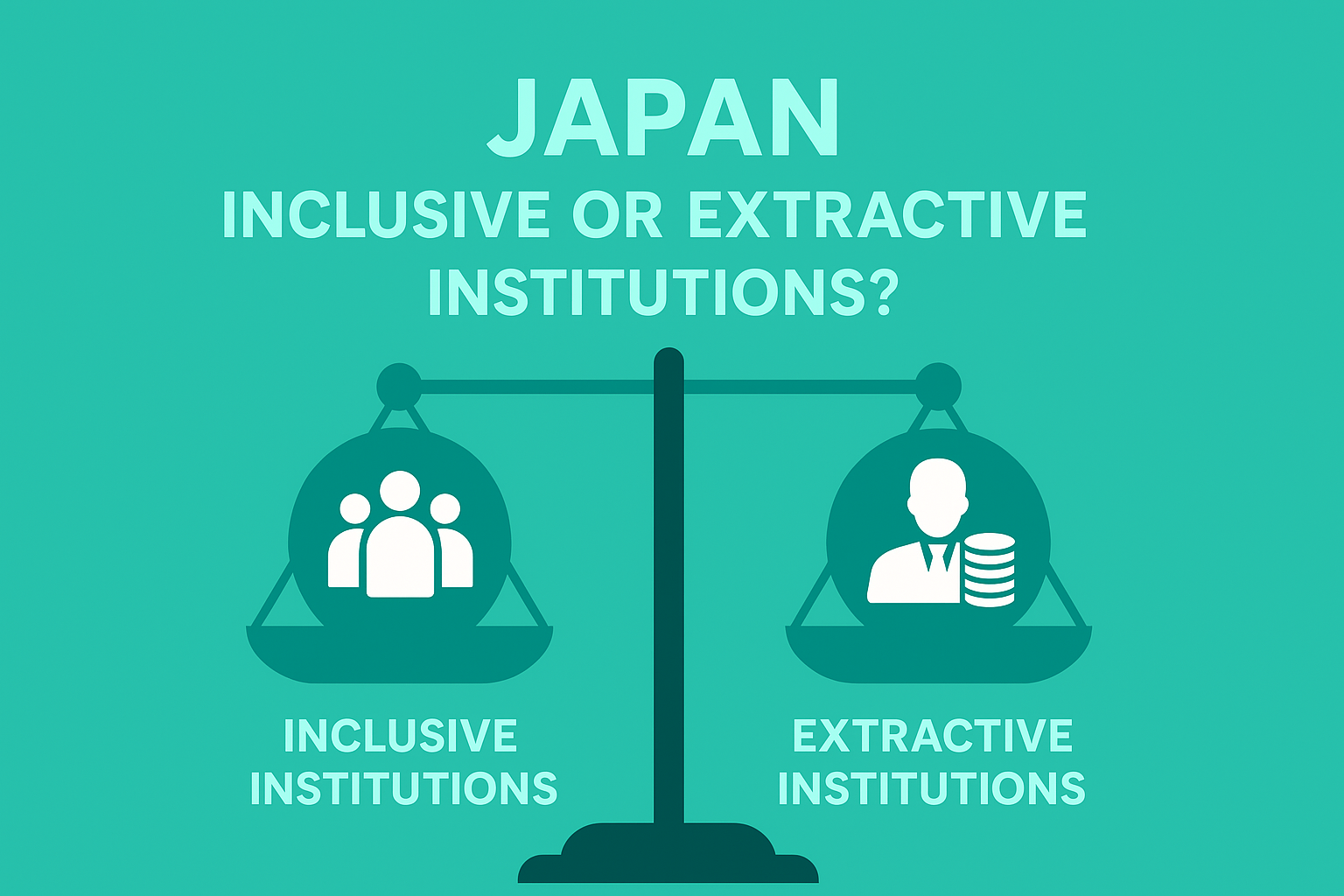“The United States: An In-Depth Analysis of Inclusive and Extractive Institutions Based on Daron Acemoglu’s Theory”
Introduction
In his book Why Nations Fail, Professor Daron Acemoglu argues that the prosperity or decline of nations is determined by the nature of their political and economic institutions. According to his theory, nations that thrive possess “inclusive institutions” that offer broad participation and opportunities for all, while those that fail are characterized by “extractive institutions” where power and wealth are concentrated in the hands of a few. In this article, we will analyze the United States’ current economic and political systems through the lens of Acemoglu’s theory, considering both its strengths and challenges.
The Strength of Inclusive Institutions in the U.S.
The United States, as a nation, exhibits many features of “inclusive institutions,” as described by Acemoglu. Specifically, the country’s political freedom, democracy, rule of law, and market-driven economy have contributed to its prosperity and global influence.
- Political Freedom and Rule of Law: The U.S. political system allows citizens to elect their leaders through democratic elections and holds the government accountable to the public. This system of checks and balances ensures that political power is distributed, and civil rights and freedoms are protected, allowing the nation to prosper.
- Market Economy: The U.S. has a largely free-market economy, where private enterprise and competition drive innovation and economic growth. The freedom to start and grow businesses fosters an environment where opportunities are available to those who can create value, aligning with Acemoglu’s concept of “inclusive economic institutions.”
Signs of Extractive Institutions in the U.S.
However, the U.S. also displays characteristics of “extractive institutions,” where economic and political power is increasingly concentrated in the hands of a few. Acemoglu warns that when institutions favor the elite, the nation risks stagnation and social instability. In recent years, this has become apparent in the growing economic inequality, political influence of wealthy elites, and the concentration of power within select industries.
- Economic Inequality: The U.S. has seen a significant rise in income inequality, with the wealthiest 1% controlling a disproportionate share of national wealth. This growing divide has limited economic opportunities for many, especially in marginalized communities. The widening gap between the rich and the poor is a clear sign of economic exclusion, which hinders social mobility and undermines the economic vibrancy of the nation.
- Political Influence of Elites: Wealthy elites and large corporations in the U.S. exert significant influence over political decisions, often through lobbying and campaign contributions. This influence leads to policies that benefit the rich and powerful, often at the expense of the broader public. Acemoglu’s theory of “extractive political institutions” is evident here, as the political system increasingly serves the interests of a narrow group, perpetuating the power of the elite.
The Role of Elites and Their Influence
Acemoglu highlights the role of political elites in shaping a nation’s destiny. In the U.S., the elite class has historically maintained its power through political maneuvering and economic control, often at the cost of broader social welfare.
- Political Lobbying and Corporate Influence: Lobbying by special interest groups and large corporations plays a central role in U.S. politics. Political donations from wealthy individuals and corporations have a profound influence on policy decisions, making it difficult for the average citizen’s voice to be heard. This political system, where elites have disproportionate influence, prevents inclusive decision-making and risks perpetuating inequality.
- Corporate Favoritism: In the U.S., policies often favor certain industries such as finance, defense, and energy. These sectors have significant sway over policy formation, receiving government subsidies and favorable regulations. This corporate favoritism not only stifles competition but also exacerbates the concentration of wealth and power, undermining economic fairness.
Social Exclusion and Political Instability
As Acemoglu argues, when large segments of the population are excluded from economic and political opportunities, social instability often follows. In the U.S., the growing economic divide, along with political polarization, is leading to social unrest.
- Inequality and Social Unrest: Economic inequality has led to dissatisfaction among large sections of the population, particularly the working and middle classes. Movements like Black Lives Matter and Occupy Wall Street highlight the social tensions resulting from the exclusion of many from economic opportunities and political power. This growing sense of alienation can lead to political instability, as citizens feel that the system is no longer serving their interests.
Institutional Reform for Sustainable Growth
For the U.S. to achieve sustainable economic growth and long-term stability, strengthening inclusive institutions is essential. Acemoglu’s theory suggests that for nations to thrive, they must create institutions that offer equal opportunities and prevent the concentration of power among a few.
- Economic and Political Reforms: Addressing economic inequality through progressive taxation, increasing access to quality education, and ensuring universal healthcare would help create a more equitable society. Additionally, reforms to reduce the influence of money in politics, such as campaign finance reform, are needed to restore the balance of power between the elites and the public.
Conclusion
The United States, according to Acemoglu’s theory of inclusive and extractive institutions, is at a crossroads. While it has strong inclusive institutions in areas like political freedom and market economy, the increasing concentration of wealth and power in the hands of elites poses a threat to its long-term stability. To ensure continued prosperity and national cohesion, the U.S. must strengthen its inclusive institutions, address growing inequality, and limit the political influence of the wealthy. Only through these reforms can the nation ensure a sustainable and fair future for all its citizens.


